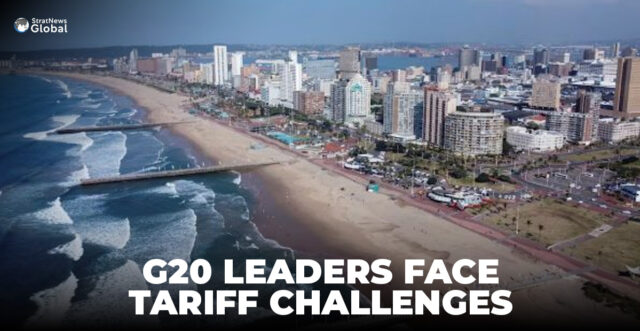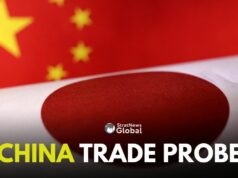G20 finance leaders are scheduled to gather in South Africa on Thursday, with the meeting overshadowed by U.S. President Donald Trump’s tariff threats and growing doubts about the group’s ability to respond collectively to global economic challenges.
The club, which came to fore as a forum for international cooperation to combat the global financial crisis, has for years been hobbled by disputes among key players exacerbated by Russia’s war in Ukraine and Western sanctions on Moscow.
Host South Africa, under its presidency motto “Solidarity, Equality, Sustainability,” has aimed to promote an African agenda, with topics including the high cost of capital and funding for climate change action.
The G20 aims to coordinate policies but its agreements are non-binding.
Absence Of Leaders
U.S. Treasury Secretary Scott Bessent will not attend the two-day meeting of finance ministers and central bank governors in the coastal city of Durban, marking his second absence from a G20 event in South Africa this year.
Bessent also skipped February’s Cape Town gathering, where several officials from China, Japan and Canada were also absent, even though Washington is due to assume the G20 rotating presidency at the end of the year.
Michael Kaplan, U.S. acting undersecretary for international affairs, will represent Washington at the meetings.
A G20 delegate, who asked not to be named, said Bessent’s absence was not ideal but that the United States was engaging in discussions on trade, the global economy and climate language.
Finance ministers from India, France and Russia are also set to miss the Durban meeting.
South Africa’s central bank governor Lesetja Kganyago said that representation was what mattered most.
“What matters is, is there somebody with a mandate sitting behind the flag and are all countries represented with somebody sitting behind the flag?” Kganyago said.
U.S. officials have said little publicly about their plans for the presidency next year, but one source familiar with the plans said Washington would reduce the number of non-financial working groups, and streamline the summit schedule.
Brad Setser, a former U.S. official now at the Council on Foreign Relations, said he expected it to be “kind of a scaled-back G20 with less expectation of substantive outcomes.”
‘Turbulent Times’
Trump’s tariff policies have torn up the global trade rule book. With baseline levies of 10% on all U.S. imports and targeted rates as high as 50% on steel and aluminium, 25% on autos and potential levies on pharmaceuticals, extra tariffs on more than 20 countries are slated to take effect on August 1.
His threat to impose further 10% tariffs on BRICS nations — of which eight are G20 members — has raised fears of fragmentation within global forums.
German finance ministry sources said on Tuesday that the Durban meeting would seek to deepen global relationships in “turbulent times”.
South Africa’s Treasury Director General Duncan Pieterse said the group nonetheless hoped to issue the first communique under the South African G20 presidency by the end of the meetings.
The G20 was last able to take a mutually agreed stance to issue a communique in July of 2024, agreeing on the need to resist protectionism but making no mention of Russia’s invasion of Ukraine.
(With inputs from Reuters)





